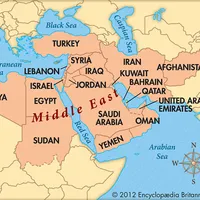Cease-Fire Negotiators Work to Avert Larger Conflict in Middle East Amid Rising Tensions

Cease-Fire Negotiators Work to Avert Larger Conflict in Middle East Amid Rising Tensions

Cease-Fire Negotiators Work to Avert Larger Conflict in Middle East Amid Rising Tensions
As tensions in the Middle East continue to escalate, international cease-fire negotiators are working tirelessly to prevent the conflict from spiraling into a larger regional war. With global attention focused on the volatile situation, representatives from key nations and international organizations are gathering in Geneva to broker a peaceful resolution.
The Geneva talks, spearheaded by the United Nations (UN) and involving representatives from the United States, Russia, Iran, Saudi Arabia, Israel, and the European Union (EU), aim to address the ongoing hostilities and establish a framework for a lasting cease-fire. UN Secretary-General António Guterres has called the negotiations “a critical juncture” in preventing further bloodshed and instability in the region.
“Our goal is to bring all parties to the table and to facilitate a dialogue that can lead to a sustainable cease-fire,” said Guterres. “The stakes are incredibly high. A wider conflict in the Middle East would have devastating consequences not only for the region but for the entire world.”
The negotiations come after months of escalating violence in the region, particularly in Syria, Lebanon, and the Gaza Strip, where clashes between various armed groups and state forces have resulted in significant civilian casualties and widespread destruction. The situation has been further complicated by the involvement of regional powers, each backing different factions in the conflict.
Leading the negotiations on behalf of the United States is Secretary of State Antony Blinken, who has been actively engaged in shuttle diplomacy over the past few weeks. Blinken has emphasized the need for immediate de-escalation and has urged all parties to exercise restraint.
“We are at a critical moment,” Blinken stated upon arriving in Geneva. “The United States is committed to working with our allies and partners to prevent this conflict from expanding. Our focus is on achieving a cease-fire that can lead to a broader peace agreement.”
Russia, a key player in the Middle East, is represented by Foreign Minister Sergey Lavrov. Russia has maintained a strong presence in Syria and has been a significant supporter of the Assad regime. Lavrov has stressed the importance of respecting Syria’s sovereignty and has called for a cease-fire that includes provisions for humanitarian aid to affected areas.
“We are here to support a peaceful resolution that respects the sovereignty of nations and ensures the delivery of humanitarian assistance to those in need,” Lavrov said in a press briefing.
Iran’s delegation, led by Foreign Minister Hossein Amir-Abdollahian, has reiterated its position as a defender of regional stability and its support for allied groups in Lebanon and Gaza. Iran’s involvement in the negotiations is seen as crucial, given its influence in the region.
“We are committed to finding a peaceful solution that addresses the legitimate concerns of all parties,” Amir-Abdollahian remarked. “However, any agreement must also ensure the security and rights of the people in the region.”
Saudi Arabia, which has been involved in a proxy war with Iran across various fronts in the Middle East, has sent its Foreign Minister, Prince Faisal bin Farhan Al Saud, to the talks. The Kingdom has emphasized the need for a cease-fire that curbs the influence of non-state actors and militias.
“Saudi Arabia stands ready to support a cease-fire that brings stability and security to the region,” Prince Faisal said. “But this must be a comprehensive agreement that addresses the root causes of the conflict.”
Israel, which has been involved in recent clashes with armed groups in Gaza and Lebanon, is represented by Foreign Minister Eli Cohen. Israel’s key concern is the security of its borders and the cessation of rocket attacks from neighboring territories.
“Israel will not tolerate threats to its security,” Cohen said. “We are here to negotiate in good faith, but our priority remains the protection of our citizens.”
The European Union, represented by High Representative for Foreign Affairs Josep Borrell, has been pushing for a cease-fire that includes a roadmap for future peace talks and reconstruction efforts in the region.
“The EU is committed to playing a constructive role in these negotiations,” Borrell noted. “We believe that a sustainable peace is possible, but it requires the cooperation of all parties involved.”
Despite the presence of key negotiators and the urgency of the situation, significant challenges remain. The region’s complex web of alliances, rivalries, and historical grievances makes finding common ground difficult. Additionally, there is concern that any agreement reached in Geneva may be fragile, given the number of armed groups operating independently of state control.
“The situation is incredibly complicated,” said Martin Griffiths, the UN’s Under-Secretary-General for Humanitarian Affairs and Emergency Relief Coordinator. “We have to ensure that any cease-fire agreement is not just a temporary pause in the fighting, but a step toward a lasting solution.”
Griffiths also highlighted the dire humanitarian situation in many parts of the Middle East, where millions of people are in urgent need of food, water, and medical care. “Humanitarian access must be a priority in these negotiations,” he said.
The outcome of the Geneva talks will have far-reaching implications beyond the Middle East. A failure to secure a cease-fire could lead to a broader conflict that draws in additional regional and global powers, potentially destabilizing the global economy and creating a massive refugee crisis.
“There is a lot at stake,” warned Richard Haass, President of the Council on Foreign Relations. “The world is watching, and the decisions made in Geneva could shape the future of the Middle East for years to come.”
As the negotiations continue, the international community remains hopeful that a peaceful resolution can be achieved, avoiding the specter of a larger, more destructive war in the Middle East.
Do you find Tmaq Media useful? Click here to give us five stars rating!



















